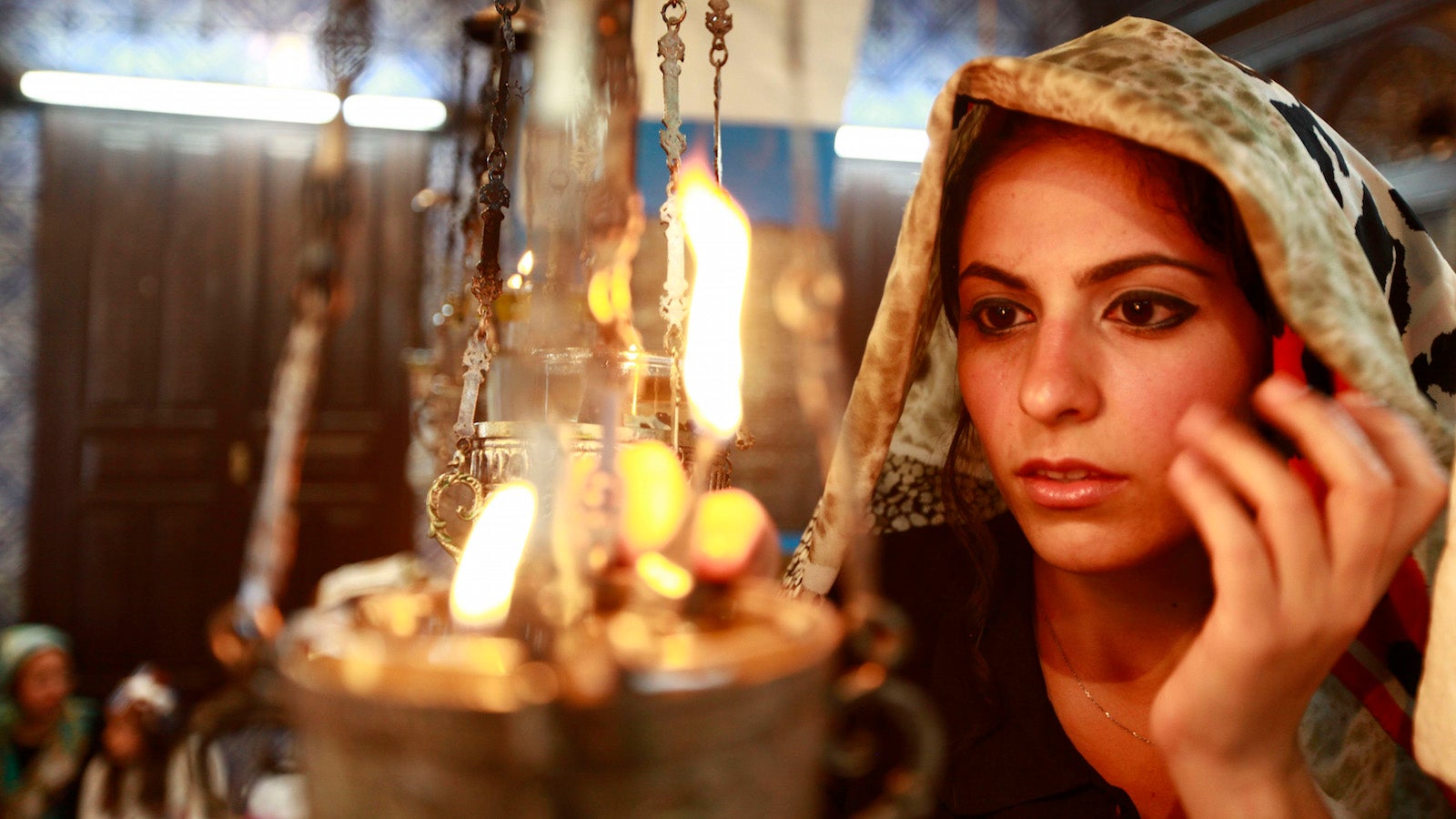Rosh Hashanah in Tunisia: a rabbi reflects on the power of Muslim-Jewish solidarity
This weekend, tables in the city of Tunis will groan under the weight of roast pumpkin, stewed lamb head, spinach leaves, olives, dates, and honey. The coastal North African city’s tiny Jewish population—some 300 strong—is preparing to celebrate Rosh Hashanah, the Jewish new year.


This weekend, tables in the city of Tunis will groan under the weight of roast pumpkin, stewed lamb head, spinach leaves, olives, dates, and honey. The coastal North African city’s tiny Jewish population—some 300 strong—is preparing to celebrate Rosh Hashanah, the Jewish new year.
“During Rosh Hashanah, we always remember what happened last year, and we take those lessons and only wish the best for the coming year,” Daniel Cohen told Quartz from the apartment he shares with his wife and ten children in downtown Tunis. Cohen, who moved to Tunis from the island of Djerba in 2002, is the head teacher at the city’s only Jewish school, where he teaches Hebrew and religious scriptures. During Shabbat and the holidays, he heads to the coastal suburb of La Goulette, where he informally acts as the rabbi for a local synagogue.
It hasn’t been an easy year for Tunisians, Jewish or otherwise. Earlier this summer, the terrorist attack on a beach resort in Sousse that killed 38, mostly foreigners, sent tourism, the backbone of Tunisia’s economy, plummeting. A few months prior, gunmen had entered Bardo Museum in the country’s capital and massacred 21 people.
But the real pain started hundreds of miles away from this small Mediterranean country, in Paris. On January 7th, two men stormed the office of satirical newspaper Charlie Hebdo, murdering the majority of the magazine’s staff, including George Wolinski and Elsa Cayat, both of Tunisian descent. A few days later, a different gunman entered a kosher supermarket and killed four people, three of them of Tunisian origin.
Among the dead was Yoav Hattab, 21, the son of Tunis’s main rabbi Benjamin Hattab. “Yoav was like my son,” Cohen says, a sad smile stretched across his face. “I was his teacher in Hebrew and Torah… When I heard this terrible news, I cried, to be honest, and I cried like I had never cried before… It was a shock for the whole community.”
Though Tunisian president Beji Caid-Essebsi and the ruling Nidaa Tounes party did not officially condemn the attacks, Tunisian civil society mobilized around the Jewish community in Tunis. Vigils and remembrance ceremonies were organized and attended by non-Jewish Tunisians. The moderate Islamist Ennahda party sent its condolences to the Hattab family, condemning the attack.
Pain and sadness reverberated around the country, but fear did not. “We didn’t feel any fear in Tunis after the Charlie Hebdo attacks,” Cohen told Quartz. “The state protects Jewish places well, thanks to God. Plus the Tunisian public doesn’t want to create problems in their country, minus a small minority.”
Following the attacks that killed his son, Rabbi Hattab expressed similar sentiments. “Jews are respected in Tunisia, we had no problems either before or after the revolution,” he said during a live interview on television channel France 2.
Since the third century BCE, Tunisia has been home to a vibrant Jewish population that always actively contributed to the country’s cultural, social, and economic identity. As late as 1956, there were 100,000 Jews [link in French] living across the country. In the first half of the twentieth century, Tunisia, which was under French colonization and considered a protectorate, became absorbed by Vichy France and later occupied by Nazi Germany. Anti-Semitic policies were imposed, and over 5,000 Tunisian Jews were forced into labor camps.
The end of World War II, followed by the creation of the state of Israel, and Tunisia’s independence from France, all contributed to a growing number of Jews moving out of the country. Many left for France or Israel over the years. Today, aside from the small community in Tunis, there are another 1,000 Jews on the island of Djerba.
Legally, the rights of Jews (along with other religious minorities) are protected here. In 2013, the Constituent National Assembly passed a new law establishing the “liberty of conscience and belief.” Despite the fact that Tunisia’s security apparatus is largely dysfunctional and fragmented, Jewish places of worship, including the Grande Synagogue de Tunis, are physically guarded by the state.
“Actually, we feel it’s harder for the Jews in the US and Europe than in Tunisia,” Cohen says. He might not be exaggerating.
According to the most recent FBI statistics, 62.4% of religiously motivated hate crimes committed in the US target Jews. In France, the watchdog group Service de Protection de la Communauté Juive (SPCJ) reported an 84% increase in the number of anti-Semitic incidents in the first quarter of 2015. “I would never send my daughter to university in France,” Cohen says with a shake of his head. “I’m too scared.”
Still, the Jewish community in Tunisia does face discrimination. Several religious sites and cemeteries were recently desecrated. When Cohen leaves the house, like many other observant male Jews, he wears a baseball cap to cover his kippah. But most Muslim Tunisians have no problems with their Jewish countrymen, he notes. They have, after all, co-existed for millennia.
As the Jewish year comes to a close, and a new one rolls in, Cohen will lead his community in ancient prayers for peace and health. Speeches will be made in a mix of Arabic and French, a ram’s horn will be blown, and apples will be dipped in honey. There is hope, as always, that this new year will be sweeter than the last.